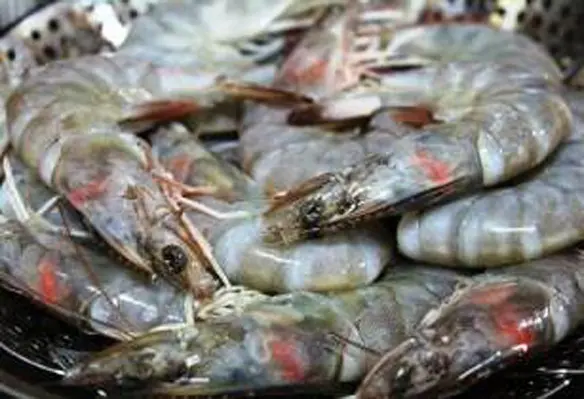The quick reading codes (QRC) app is helping consumers of shrimps farmed in Bangladesh to trace the antecedents of what they are eating
Introduced to the farmers in southern Bangladesh by the research organisation WorldFish to enhance the safety of shrimp production and to make its marketing transparent, the QRC can trace all shrimp right from the larva stage supplied to farmers.
The QRC can be used in combination with another app, SourceTrace’s platform eServices Everywhere (ESE), which can process and analyse data to offer traceability details throughout the production process — from hatchery to harvest and beyond.
“The technology is used not only to give information about the shrimp but also addresses safety concerns and some other vital issues,” Main-Uddin Ahmad, owner of the MKA Hatchery in Cox’s Bazar, told SciDev.Net.
With a quick scan, consumers can learn the date of delivery, whether banned substances were used during the processing, if production complied with bio-safety rules, was environment-friendly and avoided using child labour.
Ahmad added, “The traceability technology is actually used to get first-hand feedback on the MKA post-larvae from farmers, other shrimp value chain actors and field staff, so it is possible to identify improvement opportunities for larger scale business.”
The initiative, supported by USAID and implemented by WorldFish, will run for the first five months of 2016, with SourceTrace providing the technology. As the programme expands it will benefit some 200,000 shrimp farmers in Bangladesh.
“To consumers, traceable shrimps would mean shrimp which can be traced back to a specific group of farmers who are responsible to provide shrimp that are free from all health hazards and that are produced in compliance with international labour law,” the chief of the project, Erik H. J. Keus, revealed, adding, “The initiative is aimed at reducing the cost of traceability and the cost of monitoring the production methods of farmers. This will lead to an increase in aquaculture productivity through improved household and commercial aquaculture.”
Bangladesh earns around US$9mn from shrimp exports annually, most of it to the European Union.




